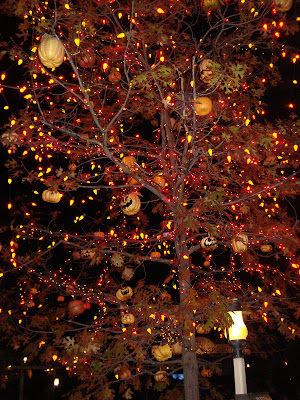to be nobody but yourself in a world which is doing its best day and night to make you everybody else, means to fight the hardest battle which any human being can fight, and never stop fighting. --ee cummings
I first happened upon this quote in high school, and I always liked it...in theory. There's obviously something freeing and romantic and right about being exactly who you are, societal norms be damned. Screw punctuation rules, ee cummings! Forget the status quo! Seize your individuality! Carpe diem!
Some of us long to be ourselves and strive to explore our real identity, but we don't know how. Where do we even look for that, and how do we know we're being ourselves? Where does our identity come from? Is it what we do, what we have, what people say and think about us?
What if we WANT to be like everyone else? We've all heard, "To thine own self be true." But what if we don't want to be who we really are? What if we think being ourselves means being hopeless, confused, hurt, ashamed, ugly, a failure? Maybe there isn't freedom in being ourselves. Maybe being exactly who we are is the scariest thing of all. We are constantly validating--or undermining--our worth through things that are not sources of Life.
As Christians, many of us feel like we've got this identity thing down, but even in the "Christian world," I see conformity and comparison and competition. The identity game might not seem as worldly because it's based less on possessions and money, but it's often just as much determined by the esteem of others, reputation, and appearance. If you've been on more missions trips, clocked more hours serving, are in more small groups or Bible studies, or, heck, work at a church, then clearly you must be more pious, no? Clearly Jesus loves YOU more, right?
Carl Jung wrote, “The acceptance of oneself is…the epitome of a whole outlook on life. That I feed the hungry, that I forgive an insult, that I love my enemy in the name of Christ—all these are undoubtedly great virtues. What I do unto the least of my brethren, that I do unto Christ. But what if I should discover that the least amongst them all, the poorest of all the beggars, the most impudent of all the offenders, the very enemy himself—that these are within me, and that I myself stand in need of the alms of my own kindness—that I myself am the enemy who must be loved—what then? As a rule, the Christian’s attitude is then reversed; there is no longer any question of love or long-suffering…We refuse to admit ever having met this least among the lowly in ourselves.”
Apart from God there is no life. No truth. No real identity or worth or value. The only accurate way to understand ourselves is by who God is and what he has done for us. Jesus isn’t the most important thing to find our identity in; he’s literally the only thing to find our identity in. The lies that we've identified ourselves with, the broken parts of our hearts and minds, the places of weakness--God can step in and heal and breathe new life and replace self-loathing with self-acceptance. And we have to claim that life...seize it, protect it, and guard it, because it's in THAT truth that we are able to find ourselves, to be exactly who we are, and to give glory to God. God has given us words, influence, heart, and desires...how are we to use them as expressions of who he is? That, friends, is the journey...
And I would call it a journey and not a battle, ee cummings, because although it takes time and effort and prayer and community and God and self-awareness to not compare and not feel discouraged, we are not fighting for victory. We're journeying in freedom from a victory that's already been won.
For in him we live and move and have our being. Acts 17:28.








 Last year, Halloween marked the beginning of a painful (not to mention unsightly) 3-month long saga of major dermatological drama. (Read about it here.)
Last year, Halloween marked the beginning of a painful (not to mention unsightly) 3-month long saga of major dermatological drama. (Read about it here.)



 find amazing recipes that I have every intention of trying out (someday…), like these roasted pumpkin cupcakes with Mexican chocolate buttercream frosting.
find amazing recipes that I have every intention of trying out (someday…), like these roasted pumpkin cupcakes with Mexican chocolate buttercream frosting. I can find ideas for all of the fabulous parties that I intend on being famous for and throwing regularly in the future, like a Jane Austen-themed soiree.
I can find ideas for all of the fabulous parties that I intend on being famous for and throwing regularly in the future, like a Jane Austen-themed soiree. I can link to instructions for unbelievable hairstyles that I’m waiting to try once my hair grows out, like this hair bow. (Unreal, right?!)
I can link to instructions for unbelievable hairstyles that I’m waiting to try once my hair grows out, like this hair bow. (Unreal, right?!)  I can find inspiration for interior décor so that I can style my future Baroque castle in the opulent style that I plan to live in.
I can find inspiration for interior décor so that I can style my future Baroque castle in the opulent style that I plan to live in.

 Cue Nancy Sinatra. These boots are going to do a lot of walkin' this fall...
Cue Nancy Sinatra. These boots are going to do a lot of walkin' this fall...
